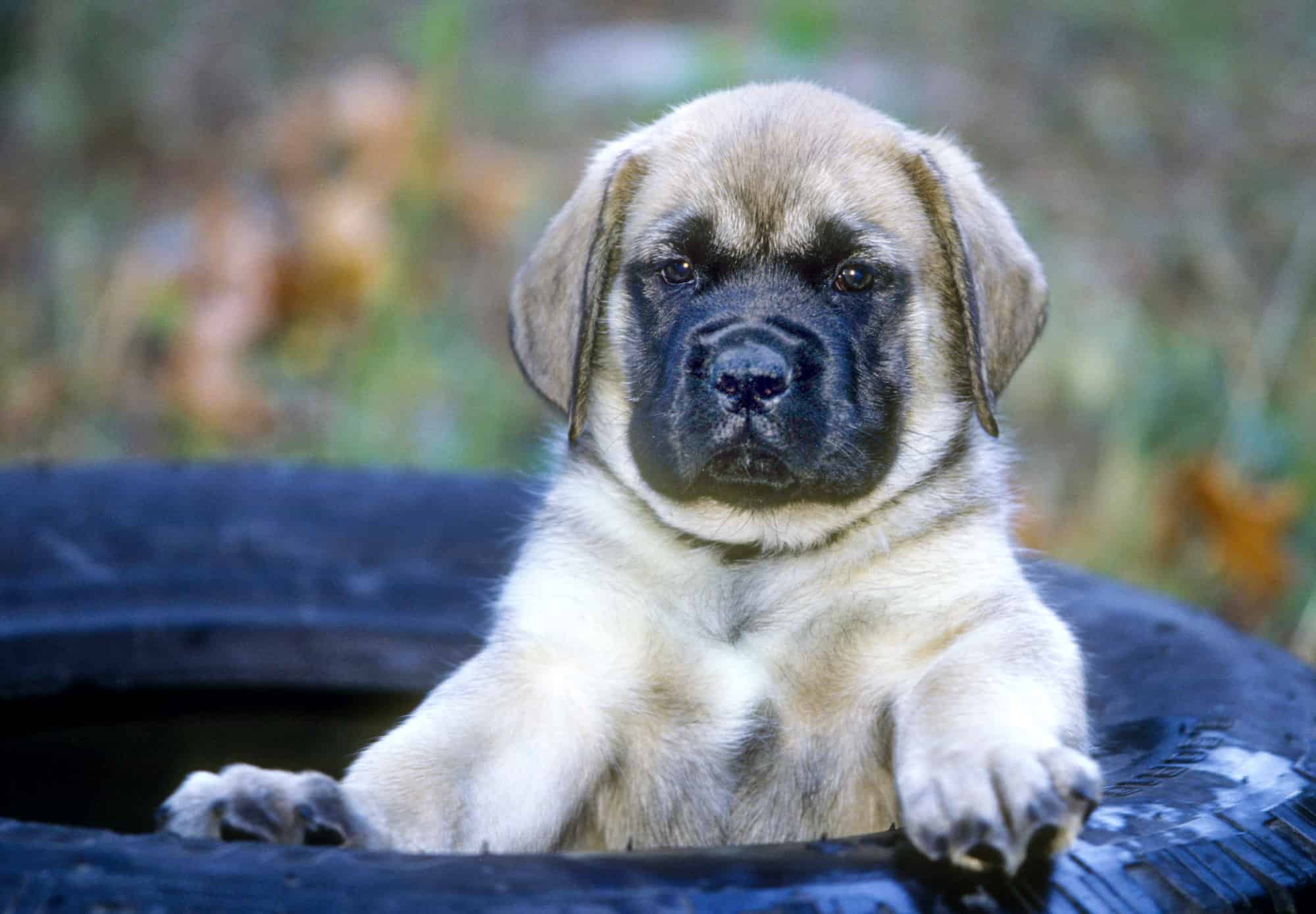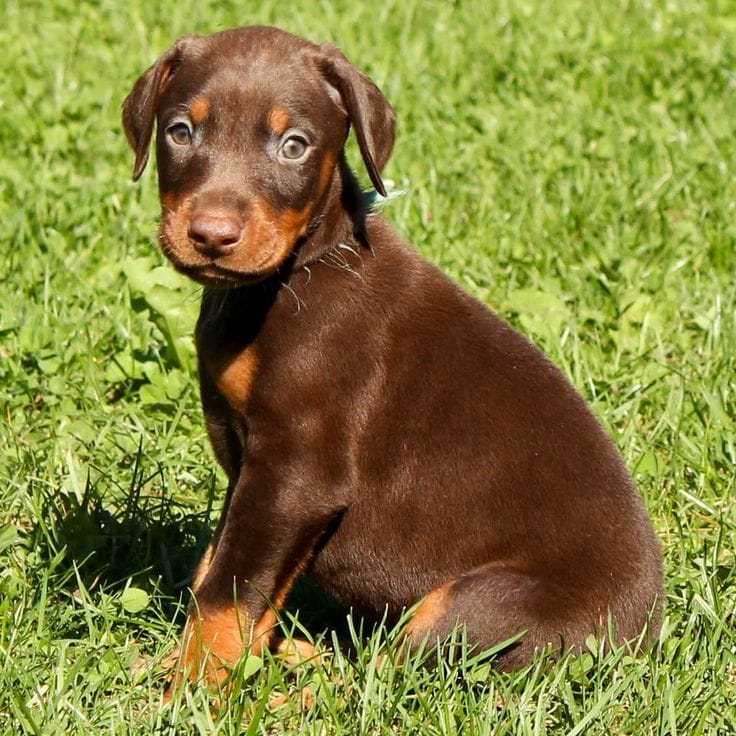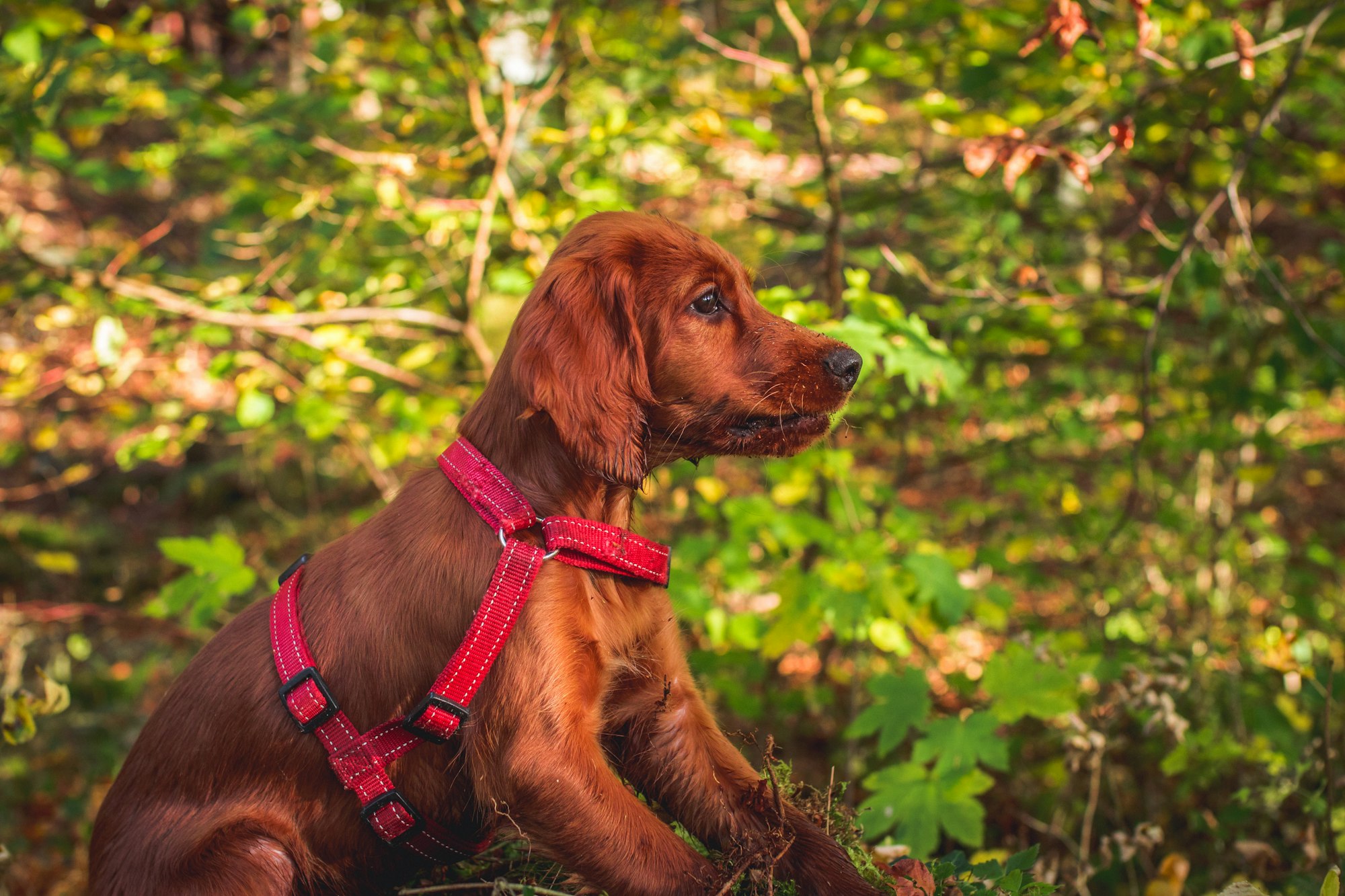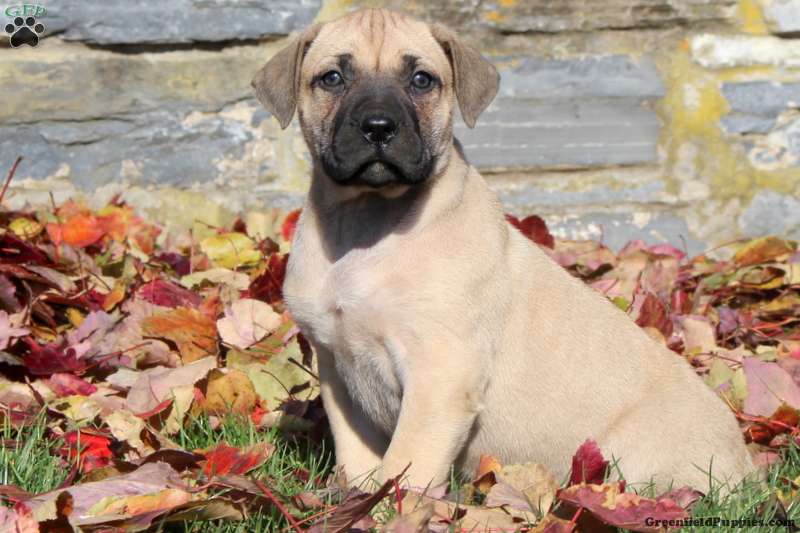The Rottweiler, a breed known for its strength, loyalty, and protective nature, has long been a favorite choice among dog lovers around the world. Originally bred in Germany for herding and guarding, Rottweilers have successfully made the transition into loving family pets, trusted companions, and even service dogs. Their versatility and intelligence, coupled with a commanding presence, make them a distinguished breed in the canine world. With the increasing popularity of Rottweilers, prospective owners are often curious about the cost of bringing one of these majestic puppies into their homes.
Understanding the financial commitment involved in owning a Rottweiler is crucial. The purchase price of a Rottweiler puppy is just the beginning. Prospective owners must also consider ongoing expenses such as food, healthcare, training, and other essentials to ensure a happy and healthy life for their pet.

In this comprehensive guide, we delve into the various factors that influence the cost of a Rottweiler puppy in 2024. From initial purchase prices to long-term care expenses, we aim to provide a thorough understanding of what it truly means, financially, to welcome a Rottweiler into your family. This knowledge is vital in preparing for the rewarding journey of Rottweiler ownership.
History and Characteristics of Rottweilers
The Rottweiler breed boasts a rich history that dates back to the Roman Empire. Originating from the town of Rottweil in Germany, these dogs were initially used to herd livestock and pull carts laden with butchered meat to market. Their strength, endurance, and intelligence made them indispensable to butchers, leading to the nickname "Rottweil butchers' dogs." Over the centuries, the Rottweiler's role evolved, and they served as guard dogs, police dogs, and even search and rescue dogs, showcasing their versatility and adaptability.
Characteristically, Rottweilers are robust and powerful, known for their well-muscled physique and agility. They possess a distinct black coat with rich tan markings, a broad head, and a confident gaze that reflects their alert and fearless nature. Despite their formidable appearance, Rottweilers are often affectionate and loyal companions, forming strong bonds with their families. They are highly intelligent and trainable, responding well to consistent, positive reinforcement-based training.
Rottweilers have a natural protective instinct, making them excellent watchdogs. However, their temperament can vary from calm and confident to more assertive. Socialization from a young age is crucial to ensure they are well-adjusted and comfortable in various environments. With the right training and socialization, Rottweilers can be gentle, loving pets, suited for families and individuals alike, making them a revered breed in the dog world.
Factors Influencing the Price of Rottweiler Puppies
When considering the acquisition of a Rottweiler puppy, it's crucial to understand the factors that can significantly influence their price. These factors not only affect the initial cost but also provide insight into the overall quality and health of the puppy.
Breeder Reputation and Location:
The reputation and location of the breeder play a pivotal role in determining the price of Rottweiler puppies. Reputable breeders, often members of recognized breeding clubs or organizations, invest considerably in the health, well-being, and breeding standards of their dogs. They typically command higher prices due to the quality of care and adherence to ethical breeding practices. Geographical location also influences price; breeders in metropolitan areas or regions where Rottweilers are in high demand may charge more compared to those in other areas.
Pedigree and Lineage:
A puppy’s pedigree and lineage are significant price determinants. Puppies descending from a line of show champions or with a high-quality pedigree usually come with a heftier price tag. These pedigrees often indicate a lineage free of genetic health issues common in the breed, a factor that seasoned owners and breed enthusiasts highly value.
Health Screenings and Medical Checks:
Responsible breeders invest in comprehensive health screenings and medical checks for their breeding dogs and puppies. This includes testing for genetic conditions, hip and elbow dysplasia evaluations, and ensuring vaccinations and deworming are up-to-date. The cost of these health measures is often factored into the price of the puppies, as it is indicative of the breeder’s commitment to raising healthy, robust puppies.
Initial Training and Socialization Efforts:
Breeders who invest time in early training and socialization efforts often sell their puppies at a higher price. Early socialization and exposure to various people, sounds, and experiences are crucial for the development of a well-rounded Rottweiler. Puppies that have started training, whether it’s basic commands or potty training, provide a foundation for easier integration into their new homes. This added value reflects in the pricing, as it reduces the initial effort and potential training costs for the new owner.
These factors collectively contribute to the overall price of a Rottweiler puppy, reflecting the breeder's investment in producing well-bred, healthy, and well-socialized dogs. Prospective owners should consider these aspects carefully when budgeting for a Rottweiler puppy, as they are indicative of the long-term health and temperament of their new companion.
Average Price Range for Rottweiler Puppies in 2024
In 2024, the cost of a Rottweiler puppy varies widely depending on several factors, including the source of the puppy, its pedigree, and location. Understanding these variations in price is crucial for potential owners to make an informed decision.
Price Variations:
Generally, the price range for Rottweiler puppies can be quite broad. For a puppy from a reputable breeder, prices typically range from $1,500 to $2,500, but can go as high as $4,000 or more for top-lineage puppies. These costs are reflective of the breeder’s investment in the health, pedigree, and upbringing of the puppies. Factors like championship lineage, health clearances of the parents, and the breeder’s reputation contribute to this higher pricing. Additionally, location can significantly influence the cost; puppies in urban areas or regions with a higher cost of living may be priced at the upper end of the spectrum.
Reputable Breeders:
Reputable breeders often charge more for Rottweiler puppies, but this higher price is usually justified by the quality of care and preparation the puppies receive. These breeders conduct extensive health screenings, provide initial vaccinations, and ensure proper socialization. They are also likely to offer post-sale support, including advice on training and health care, which can be invaluable for first-time Rottweiler owners.
Pet Stores and Puppy Mills:
While pet stores or less reputable sources may offer Rottweiler puppies at lower prices, often ranging from $800 to $1,200, this reduced cost can come with risks. Puppies from these sources may not have the benefit of thorough health screenings and may come from overbred or poorly cared-for parents. The initial savings could potentially lead to higher veterinary costs in the future due to undisclosed health problems.
Rescues and Shelters:
Adopting a Rottweiler from a rescue or shelter is a cost-effective and humane option. Adoption fees can range from $50 to $300, covering the expenses of vaccinations, spaying/neutering, and other basic medical care. While rescue Rottweilers may not have a known pedigree, they can make wonderful pets and are often eagerly looking for a second chance at a loving home.
The price of a Rottweiler puppy in 2024 can vary significantly based on the source, with reputable breeders charging more due to the quality and comprehensiveness of care provided to their puppies. It is important for potential owners to weigh the initial cost against the long-term health and welfare benefits that come from choosing a responsibly bred Rottweiler puppy.
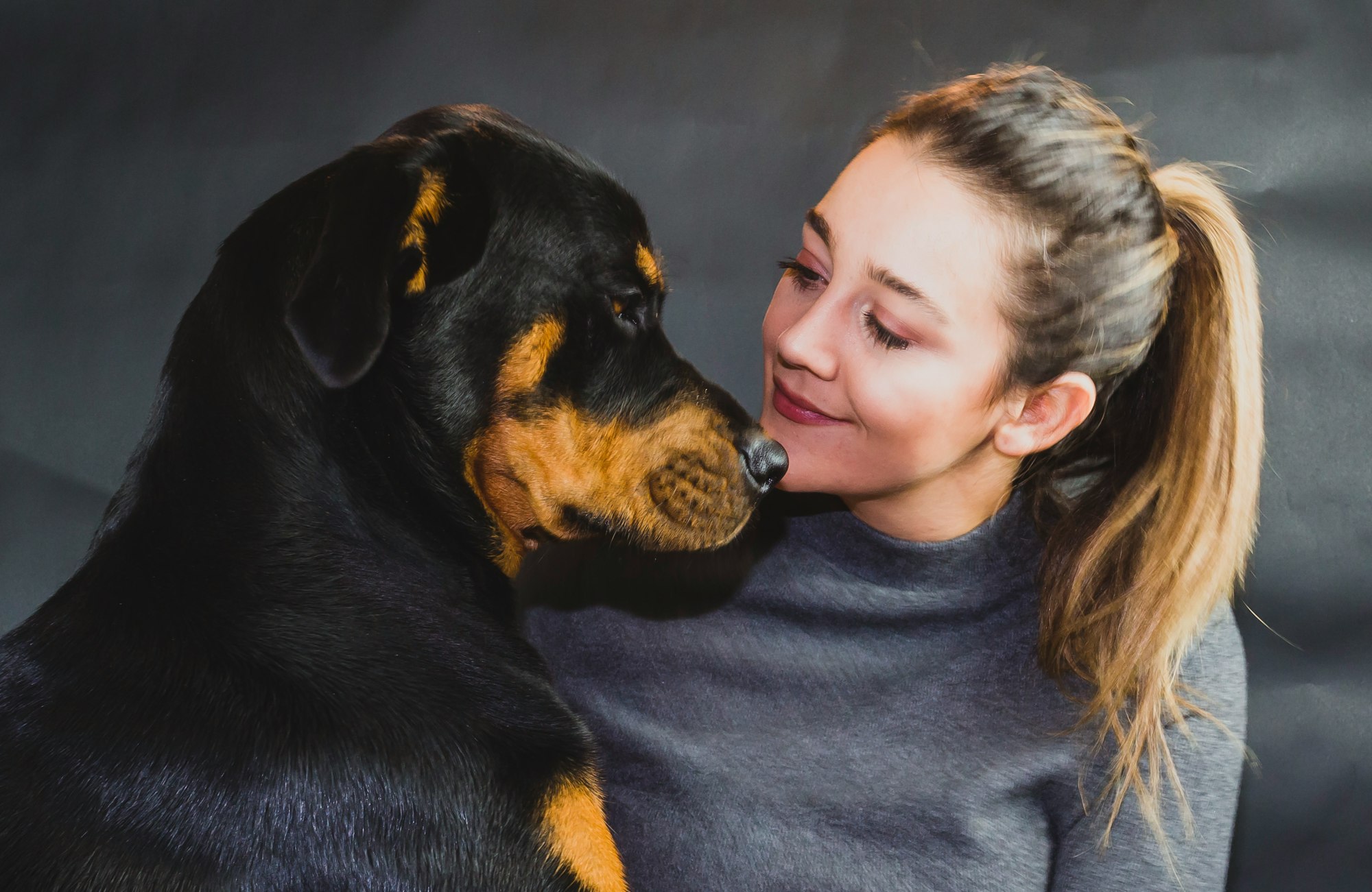
Initial Costs of Rottweiler Puppy Ownership
Welcoming a Rottweiler puppy into your home comes with various initial costs that extend beyond the purchase price of the puppy itself. These expenses are crucial for the well-being and comfort of the new addition to your family.
Necessary Supplies:
Preparing for a Rottweiler puppy requires several essential supplies. A sturdy crate, suitable for the size of a fully grown Rottweiler, is vital for safe transportation and house training, costing around $50 to $150. Bedding that is comfortable and easy to clean can range from $30 to $100. High-quality puppy food, bowls for food and water, and chew toys are also necessary, potentially adding another $100 to $200 to the initial expenses. Other items like a leash, collar, and grooming supplies such as brushes and nail clippers add approximately $50 to $100 more. Investing in durable and size-appropriate toys is essential for a breed as large and active as the Rottweiler, and this can cost anywhere from $30 to $100.
Initial Veterinary Care:
Veterinary care is a critical component of the early stages of puppy ownership. Initial veterinary visits for a Rottweiler puppy typically include vaccinations, deworming, and a general health check-up. These visits can cost between $100 to $300, depending on the region and the specific needs of the puppy. Vaccinations are crucial in protecting the puppy from common canine diseases, while deworming ensures the puppy's internal health.
Microchipping and Registration Fees:
Microchipping is an essential step in ensuring the safety and identification of your Rottweiler. This procedure typically costs between $40 to $60 and is often done during one of the initial vet visits. Additionally, registration fees with local authorities or kennel clubs may apply, which can range from $15 to $50. These steps are vital for the legal and responsible ownership of your new pet.
In total, the initial costs for Rottweiler puppy ownership, including supplies, veterinary care, and microchipping, can range from approximately $375 to $850. These costs reflect the necessary investment in the health, safety, and comfort of your new Rottweiler puppy, setting the stage for a happy and healthy life together.
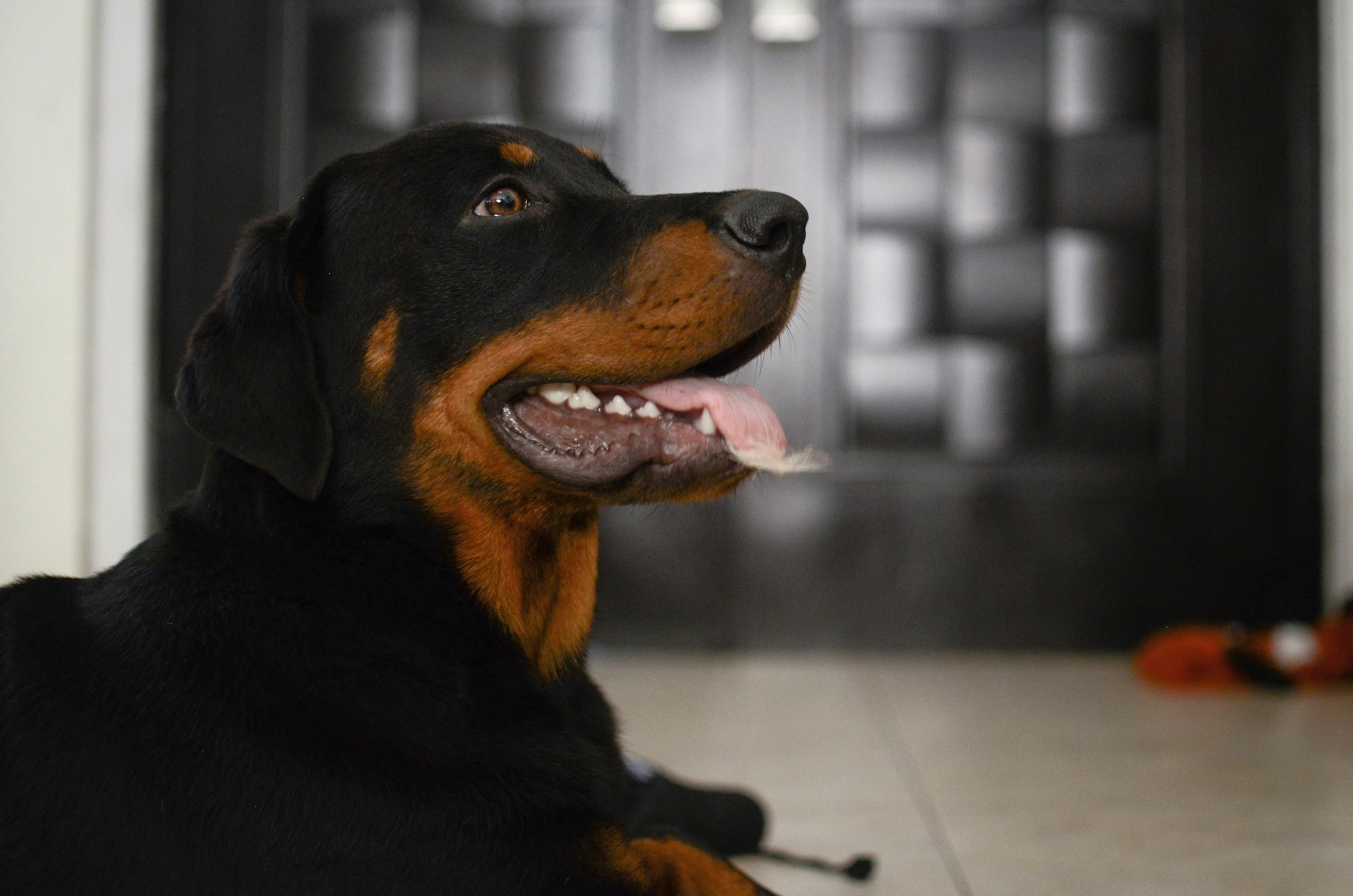
Long-term Costs of Owning a Rottweiler
Owning a Rottweiler is a long-term commitment that involves various ongoing expenses. Understanding these costs is crucial for ensuring a healthy and fulfilling life for your pet.
Food and Dietary Needs:
Rottweilers are large, active dogs with significant nutritional needs. High-quality dog food, tailored to their size and activity level, is essential. On average, the monthly cost of feeding a Rottweiler can range from $50 to $100, depending on the brand and type of food. Special dietary requirements or preferences for organic or specialty foods can increase this cost. Additionally, supplements such as joint support for larger breeds may be necessary, adding an extra $10 to $30 per month.
Regular Health Check-ups and Vaccinations:
Regular veterinary check-ups are important to maintain the health of your Rottweiler. Annual vet visits, including routine examinations and booster vaccinations, can cost between $100 to $300. These regular check-ups help in early detection and prevention of health issues.
Potential Medical Costs for Common Health Issues:
Rottweilers are prone to certain health conditions, such as hip dysplasia, heart problems, and certain types of cancer. The cost of treating these conditions can vary widely. For instance, surgery for hip dysplasia can cost several thousand dollars, while ongoing treatments for heart conditions or cancer can add significant long-term expenses. It's important to budget for potential unforeseen medical costs, which can range from a few hundred to several thousand dollars.
Grooming and Maintenance Expenses:
Although Rottweilers have a relatively low-maintenance coat, regular grooming is still necessary. Basic grooming supplies and occasional professional grooming sessions can cost around $30 to $100 annually. Other maintenance costs include flea and tick prevention, heartworm medication, and dental care products, adding approximately $200 to $500 per year.
The long-term costs of owning a Rottweiler include food and dietary expenses, regular health check-ups, potential medical costs for breed-specific health issues, and grooming and maintenance expenses. Annually, a Rottweiler owner can expect to spend approximately $1,200 to $3,000, varying with the dog's specific needs and any unforeseen medical expenses. These costs highlight the importance of financial planning and preparation for the rewarding responsibility of Rottweiler ownership.
Training and Socialization Costs
Training and socialization are crucial elements in raising a well-adjusted Rottweiler. These dogs are known for their intelligence and strength, but without proper training and social interaction, they can develop behavioral issues. Early socialization helps them become comfortable with different people, environments, and other animals, fostering a well-rounded temperament.
- Importance of Training and Socialization: Rottweilers thrive on structure and clear communication. Training provides
- mental stimulation and establishes a bond between the dog and its owner. Socialization, especially in the puppy stage, is vital to prevent aggression and fearfulness. It helps them understand how to behave in various situations, ensuring they are confident and well-behaved.
- Options for Training Classes and Their Costs: Many owners opt for professional training classes to ensure their Rottweiler receives comprehensive training. Puppy obedience classes, which cover basics like sit, stay, and recall, can range from $50 to $125 for a series of classes. Advanced training or specialized classes such as socialization or aggression management may cost more. Group classes are generally more affordable, while private sessions, offering personalized attention, can range from $50 to $100 per hour.
- Tips for Effective Training at Home: Consistency is key in training Rottweilers at home. Short, frequent training sessions are more effective than long, infrequent ones. Positive reinforcement techniques, like treats and praise, work well. It’s also important to establish and maintain clear boundaries and rules in the household. Regular, varied socialization experiences, like visits to parks or dog-friendly stores, help reinforce training and social skills.
Ethical Considerations When Buying a Rottweiler Puppy
When purchasing a Rottweiler puppy, it's imperative to avoid puppy mills and backyard breeders. These often unregulated entities prioritize profit over the well-being of the animals, leading to poor health and socialization issues in puppies. Ethical breeding practices, on the other hand, ensure the health, temperament, and overall well-being of both the puppies and their parents. Supporting reputable breeders who follow ethical standards contributes to the eradication of inhumane breeding practices. It also promotes the health and preservation of the Rottweiler breed, ensuring that puppies are raised in a loving, healthy environment.

Conclusion
In this guide, we've explored the multifaceted aspects of owning a Rottweiler puppy, including the varying costs, from initial purchase to long-term care. Understanding these expenses is crucial for responsible ownership, encompassing everything from essential supplies to training, healthcare, and ethical breeding considerations. Owning a Rottweiler is a significant commitment that brings immense joy and companionship. These loyal, intelligent dogs not only require financial investment but also dedication to training and socialization. By embracing this responsibility, owners can ensure a fulfilling and loving relationship with their Rottweiler, making every investment worthwhile.
FAQs
- How much does a Rottweiler puppy typically cost in 2024?
- The price of a Rottweiler puppy in 2024 can range from $1,500 to $4,000 or more, depending on factors like breeder reputation, pedigree, and location.
- What are the initial costs involved in Rottweiler puppy ownership?
- Initial costs include expenses for supplies like a crate, bedding, and toys, as well as veterinary care such as vaccinations and deworming, and microchipping, totaling approximately $375 to $850.
- What are the long-term costs of owning a Rottweiler?
- Long-term costs include food, regular health check-ups, potential medical expenses for breed-specific issues, and grooming, which can average $1,200 to $3,000 annually.
- Why is training and socialization important for Rottweilers?
- Proper training and socialization are essential for Rottweilers to ensure they are well-behaved, sociable, and comfortable in various environments, preventing behavioral problems.
- How much can training and socialization for a Rottweiler cost?
- Professional training classes can range from $50 to $125 for basic obedience, with advanced or private sessions costing more. Consistent home training is also crucial.
- What should I consider for ethical Rottweiler puppy purchase?
- It’s important to avoid puppy mills and backyard breeders, and instead support reputable breeders who follow ethical breeding practices, focusing on the health and well-being of the dogs.
- What makes Rottweilers a rewarding pet to own?
- Rottweilers are known for their loyalty, intelligence, and affectionate nature. With proper care, training, and socialization, they make deeply rewarding companions, offering a unique blend of strength and gentleness.
More "How Much Are Puppies" articles:
